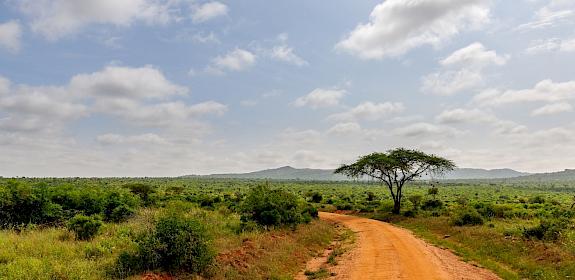Trade alliance formulated in China
Beijing, China, 25th February 2011—Nibbling on a piece of dried southern Schisandra fruit, Mr Liu, the CEO of a prestigious traditional Chinese medicine (TCM) trading company in Zhejiang Province is savoring the sweetness and aroma of the produce.

Mr Liu and other TCM traders from across China and beyond are sampling TCM plant products today in Beijing, where they are meeting with collectors of wild TCM plants from the Yangtze River area.
They aim to establish a ‘trade alliance’ between local producers and traders for the sustainable production of wild medicinal plant species.
The inaugural conference on international trade alliances held by TRAFFIC, WWF and the World Federation of Chinese Medicine Societies (WFCMS) will help establish links between producer associations in mountainous villages and national and international traditional Chinese medicine traders.
Around 15 representatives from TCM manufacturers in the Netherlands, Russia, USA, Korea and Brazil as well as China and 15 representatives from three producers associations in three pilot study sites have helped establish the foundations for the trade alliance.
They have exchanged information on international TCM export requirements and sustainable harvesting.
The meeting is the latest development in a collaborative WWF China, IUCN and TRAFFIC China project ‘Sustainable Management of Traditional Medicinal Plants in High-biodiversity Landscapes of Upper Yangtze Ecoregion’ through the European Union’s China Biodiversity Programme (ECBP), funded by the European Union Development Programme (EUDP).
Mountain landscapes in the upper Yangtze River basin are internationally recognized for their biodiversity values and listed as the top priority area for biodiversity conservation in China.
An estimated 75% of commercially harvested Chinese medicinal plant species are found in the region, but many are endangered due to overharvesting.
In order to mitigate the degradation of populations of TCM species and improve local plant harvesters’ livelihoods, in 2007 WWF, IUCN and TRAFFIC launched the project within the ECBP in China.

Local producers in villages in Sichuan, Gansu and Shaanxi Provinces have been introduced to the concept and skills needed for sustainable harvesting of wild TCM plants.
Guidelines for the certification of wild-collected products have been introduced and producers helped with marketing of their sustainably harvested medicinal plant species.
In Ningshan County, Shaanxi Province, the Qinlin Changchun Winery has purchased sustainably collected southern Schisandra fruits to make wine since 2008.
“We now have more a stable supply of Schisandra by supplementing our existing supplies with sustainably wild-harvested fruit,” said Mr. Wang, Manager of the winery, who addressed the meeting in Beijing.
“Once the winery gets into full production capacity, hundreds of additional jobs will be made available to local villagers.”
Thanks to the joint work of these conservation organizations, 6 producers associations have been established in the villages of the three Provinces, representing about 970 local families and 3322 villagers, who treat wild collection as an important income.
“Three years after TRAFFIC/WWF and our partners introduced standards of sustainable management of wild medicinal plants to producers in the Yangtze region, our work is beginning to bear fruit,” said Professor Xu Hongfa, Director of TRAFFIC’s programme in China.




